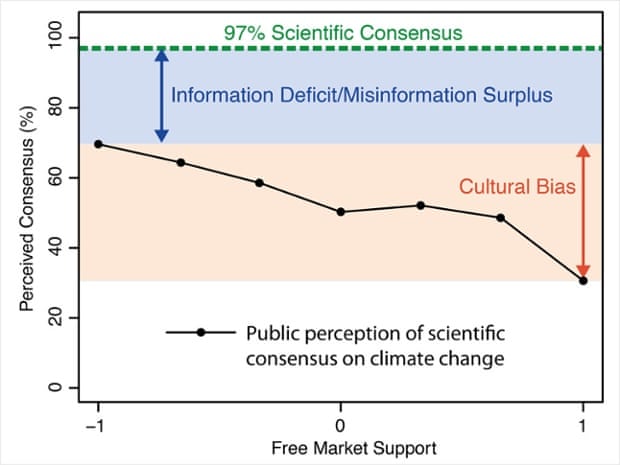
An interesting sequence of events followed the publication of a scientific paper the Skeptical Science team published in May last year. The paper found a 97% consensus that humans were causing global warming in relevant scientific papers. Finding an overwhelming consensus was nothing new. Studies in 2009 and 2010 also found 97% agreement among climate scientists on human-caused global warming. Nevertheless, the paper attracted much media attention, including tweets from Elon Musk and President Obama.
We expected our work would be attacked from those who reject climate science. We weren’t disappointed. Since publication, hundreds of blog posts, reports, videos, papers and op-eds have been published attacking our paper. A year and a half later, there is no sign of slowing. But this is just the latest chapter in over two decades of manufactured doubt on the scientific consensus about climate change.
What did surprise me were criticisms from scientists who accept the science on climate change. They weren’t arguing against the existence of a consensus, but whether we should be communicating the consensus. This surprised me, as our approach to climate communication was evidence-based, drawing on social science research. So in response, I along with co-author Peter Jacobs have published a scholarly paper summarising all the evidence and research underscoring the importance of consensus messaging.
One objection against consensus messaging is that scientists should be talking about evidence, rather than consensus. After all, our understanding of climate change is based on empirical measurements, not a show of hands. But this objection misunderstands the point of consensus messaging. It’s not about “proving” human-caused global warming. It’s about expressing the state of scientific understanding of climate change, which is built on a growing body of evidence.
Consensus messaging recognises the fact that people rely on expert opinion when it comes to complex scientific issues. Studies in 2011 and 2013 found that perception of scientific consensus is a gateway belief that has a flow-on effect to a number of other beliefs and attitudes. When people are aware of the high level of scientific agreement on human-caused global warming, they’re more likely to accept that climate change is happening, that humans are causing it and support policies to reduce carbon pollution.
Another argument against consensus messaging is that public understanding of the climate issue has moved on from fundamental issues such as the consensus. The evidence says otherwise. Public surveys have found that the public are deeply unaware of the consensus. On average, the public think there’s a 50:50 debate. There are several contributors to this “consensus gap”, including mainstream media’s tendency to give contrarian voices equal weight with the climate science community.
Funnily enough, a third objection to consensus messaging argues that we shouldn’t communicate consensus because public views have not moved on. In other words, the fact that public opinion about consensus hasn’t shifted over the last decade implies that consensus messaging is ineffective.
Dan Kahan argues that consensus is a polarizing message. Liberals are predisposed to respond positively to consensus messaging. Meanwhile, conservatives are more likely to reject the scientific consensus.
Political ideology certainly does influence people’s attitudes towards climate change. The following graph shows data I’ve collected from a representative sample of Americans, asking them how many climate scientists agreed about human-caused global warming. The horizontal access in this graph represents political ideology (specifically, support for an unregulated free market, free of interference from government).
Posted by John Cook on Thursday, 20 November, 2014
 |
The Skeptical Science website by Skeptical Science is licensed under a Creative Commons Attribution 3.0 Unported License. |